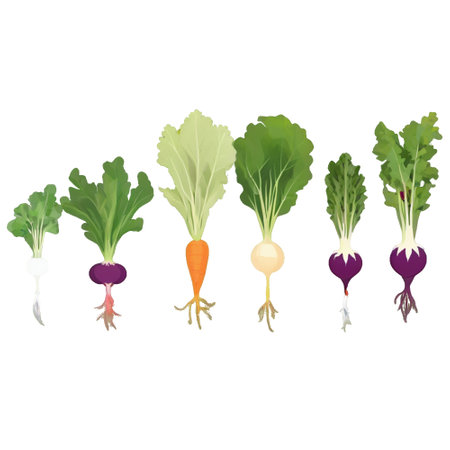The Resurgence of Urban Foraging in Modern British Life
Urban foraging is experiencing a remarkable revival across British cities, weaving together the threads of history, local tradition, and sustainable living. Once a commonplace practice among our ancestors, foraging was an essential means of supplementing diets with wild foods from hedgerows, commons, and woodlands. Today, in the heart of urban landscapes like London, Manchester, and Edinburgh, city dwellers are rediscovering this ancient knowledge as a modern-day remedy for disconnect from nature and overreliance on commercial food chains.
This renewed interest is more than a nostalgic nod to the past—it’s a response to contemporary concerns about sustainability and wellbeing. Urban foraging reconnects people with the rhythms of the natural world, fostering mindfulness and appreciation for seasonal abundance right on their doorstep. It also champions local biodiversity and reduces food miles, aligning with Britain’s growing environmental consciousness. As communities gather to learn about edible finds in parks or along canal paths, they are not only reviving age-old skills but also cultivating a sense of belonging and stewardship for their local environment. In this way, urban foraging becomes both a celebration of British heritage and a forward-thinking approach to living harmoniously within our city ecosystems.
2. How to Forage Safely in Urban Environments
Urban foraging in British cities offers a fascinating way to reconnect with nature and discover local edible treasures, but it is essential to approach this practice with mindfulness and respect—for the land, the law, and your own wellbeing. The principles of traditional Chinese medicine remind us that harmony between our inner world and the environment is crucial for balanced health. In the same spirit, safe foraging in the city requires knowledge, caution, and consideration.
Legal Considerations
Before picking anything, it is vital to be aware of UK laws regarding wild food gathering. Public parks and green spaces often have by-laws that restrict or prohibit foraging. Always check signage or consult local council websites for guidelines. Never forage on private land without permission—trespassing is not only illegal but can also cause unnecessary conflict with landowners.
| Location Type | Foraging Policy | Recommended Action |
|---|---|---|
| Public Parks | Often restricted; check local by-laws | Consult council website/signage |
| Nature Reserves | Usually prohibited to protect wildlife | Avoid foraging |
| Woodlands & Commons | Permitted in some areas; no uprooting allowed | Pick only above-ground parts; follow signage |
| Private Gardens/Allotments | No foraging without explicit permission | Seek owner consent first |
Identifying Safe-for-Consumption Locations
The vitality of an edible plant, much like qi in the body, depends on its environment. Avoid areas exposed to pollution: busy roadsides, industrial zones, or locations treated with pesticides. Focus your search on clean parks, community gardens, riverside paths away from urban runoff, and established greenways. When uncertain about an area’s safety, local allotment societies or wildlife trusts can offer guidance.
Key Urban Foraging Etiquette in the UK
- Take only what you need: Harvest mindfully to allow plants to regenerate and leave plenty for wildlife and other foragers.
- Avoid rare or protected species: Use resources such as Plantlife’s guidelines or the Wildlife Trusts’ advice to identify which plants are off-limits.
- Tread lightly: Stick to established paths where possible to prevent trampling delicate habitats.
- Cleansing finds: Wash all foraged items thoroughly at home to remove pollutants—a practice aligned with maintaining internal purity according to traditional holistic wisdom.
- Respect others: Share knowledge kindly and leave spaces cleaner than you found them, nurturing a sense of community stewardship.
A Mindful Approach to Urban Foraging
The urban landscape is ever-changing; adopting a respectful attitude towards both city and nature ensures sustainable enjoyment for all. By upholding these essential safety principles, urban foragers can experience not only nourishment from edible finds but also a harmonious connection with their surroundings—mirroring the balance central to both British countryside traditions and holistic health philosophies.

3. Common Edible Wild Finds in British Cities
Urban green spaces in the UK offer a surprising bounty of edible wild plants, fruits, and fungi for those who know where to look. With an emphasis on balance between nature and wellbeing, foraging can be a mindful practice connecting you with the land’s seasonal rhythms. Below, we guide you through some typical finds and key principles for responsible urban foraging.
Edible Plants
Nettle (Urtica dioica): Abundant along park edges and canal banks, young nettle tops are rich in nutrients and can be made into soups or teas. Always wear gloves when harvesting and cook thoroughly to neutralise the sting.
Dandelion (Taraxacum officinale): This resilient herb offers edible leaves, flowers, and roots. Young leaves add a mildly bitter note to salads, while flowers can be infused as tea. Harvest away from high-traffic areas to avoid pollution.
Wild Garlic (Allium ursinum): Found in shady woodland patches, its broad leaves release a garlicky aroma when crushed. Excellent for pestos and salads, but take care not to confuse with toxic lily-of-the-valley.
Urban Fruits
Blackberries (Rubus fruticosus): Hedgerows burst with juicy blackberries come late summer. Pick ripe, dark fruits only; leave enough for wildlife and future growth by never stripping a bush bare.
Elderberries (Sambucus nigra): Clusters of deep purple berries hang from elder trees in parks and along footpaths in early autumn. Always cook before eating to remove toxins; ideal for syrups or cordials supporting immune health.
Foraged Fungi
Field Mushrooms (Agaricus campestris): These classic mushrooms appear on grassy lawns after rain. Only harvest if you are confident in identification—avoid any mushroom with white gills or an unpleasant scent, as these could be toxic lookalikes.
Sustainable Harvesting Tips
- Harvest lightly: Take only what you need and never uproot entire plants. Leave enough behind for regeneration and wildlife.
- Avoid polluted sites: Steer clear of busy roadsides, dog-walking routes, or industrial land where contamination risk is high.
- Identification is vital: Many edible species have poisonous lookalikes. Use reputable field guides or join local foraging groups before tasting anything unfamiliar.
A Mindful Approach
Remember that urban foraging is not just about gathering food—it’s about cultivating harmony between our bodies, minds, and the living landscape around us. By harvesting thoughtfully and respectfully, we ensure both personal wellbeing and the ongoing vitality of our city’s green spaces.
4. Connecting with Community Foraging Resources
Foraging in British cities flourishes when it is rooted in community spirit, shared wisdom, and collective care for the local environment. Tapping into established community networks not only enriches your own experience but also ensures that urban foraging remains safe, ethical, and sustainable. Below, we explore how community gardens, local foraging groups, and online initiatives serve as invaluable resources for urban foragers across the UK.
Community Gardens: Urban Green Havens
Many British cities boast thriving community gardens—pockets of green nurtured by local residents who value biodiversity and edible landscapes. These spaces often feature native herbs, fruit trees, and wild edibles purposefully cultivated or allowed to grow naturally. By joining a community garden, you gain access to hands-on learning opportunities, seasonal workshops on plant identification, and guidance from experienced gardeners who understand the rhythms of the land even amidst city bustle.
Local Foraging Groups: Learning Together
Whether you are a novice or seasoned forager, connecting with local foraging groups offers an avenue to deepen your knowledge while fostering friendships. Such groups frequently organise guided walks through parks and greenways—highlighting safe locations and discussing responsible harvesting practices. This collective approach mirrors traditional wisdom found in holistic medicine: learning directly from nature and each other promotes harmony between body, mind, and environment.
Popular Foraging Groups Across Britain
| City/Region | Group Name | Typical Activities |
|---|---|---|
| London | London Foraging Group | Guided walks, plant ID workshops |
| Manchester | Wild Food UK – Manchester Branch | Mushroom hunts, group outings |
| Bristol | Bristol Foragers | Seasonal events, recipe sharing |
Online Initiatives: Virtual Knowledge Sharing
The rise of digital communities has made foraging knowledge more accessible than ever. UK-based websites, forums, and social media groups provide platforms where members exchange tips on safe identification, share updates on urban bounty spots (while respecting sustainability), and discuss evolving legislation regarding wild food collection. Examples include the British Mycological Society’s online resources and Facebook groups dedicated to regional foragers.
The Holistic Value of Community Engagement
Engaging with these community resources does more than expand your practical skills—it cultivates a sense of belonging and mindfulness reminiscent of traditional Eastern practices. Responsible urban foraging is not just about gathering food; it is an act of connecting to place and people, nourishing both body and spirit while safeguarding nature’s gifts for future generations.
5. Cultivating Mindful Connection with Nature in the City
In the midst of British urban life, where concrete landscapes often overshadow green spaces, urban foraging offers a unique opportunity to nurture both body and mind. Drawing from holistic health perspectives and traditional wisdom, this practice encourages city dwellers to slow down, observe the changing seasons, and reconnect with nature on a daily basis. Foraging is not merely a quest for wild edibles—it is an invitation to engage all the senses, breathe deeply, and become attuned to the subtle rhythms of the environment.
The Physical Benefits of Urban Foraging
Engaging in urban foraging provides gentle physical activity that can be easily integrated into daily routines. Walking through parks or along hedgerows, bending to examine plants, and carrying your harvest all contribute to increased mobility and improved circulation. These natural movements support musculoskeletal health in a way reminiscent of qigong’s focus on flow and balance. Moreover, adding fresh, seasonal ingredients such as wild garlic or nettles to one’s diet brings variety and nutritional richness—vitamins, minerals, and phytonutrients—that align with both modern nutritional science and ancient dietary principles.
Mental and Emotional Wellbeing
Beyond its physical benefits, urban foraging fosters mindfulness—a key element in maintaining emotional harmony according to both contemporary wellbeing research and classical Chinese medicine. The act of identifying plants, noticing their subtle differences, and appreciating their growth cycles cultivates presence and gratitude. This mindful attention helps reduce stress and anxiety while encouraging a sense of groundedness amidst the city’s bustle. Sharing these discoveries with friends or community groups further strengthens social bonds and collective resilience.
A Holistic Approach to Urban Living
Urban foraging is most beneficial when approached with intention and respect for the local ecosystem. Practising gratitude for nature’s abundance, taking only what is needed, and leaving enough for wildlife fosters a reciprocal relationship with the land—even in an urban setting. In this way, city residents can restore balance to their lives by harmonising internal wellbeing with external environments. Ultimately, urban foraging becomes more than a hobby; it evolves into a path toward wholeness, inviting Londoners, Mancunians, Glaswegians—and all city dwellers—to rediscover their innate connection with nature right on their doorstep.
6. Responsible Foraging: Environmental and Ethical Considerations
Urban foraging across British cities offers a unique opportunity to reconnect with nature, but it also comes with a duty of care for our environment and communities.
Conserving Urban Biodiversity
Foragers play a vital role in safeguarding the delicate balance of urban ecosystems. Harvesting mindfully—taking only what you need and leaving plenty behind—helps maintain healthy populations of wild edibles for both wildlife and fellow foragers. Choose abundant species over rare or threatened ones, and always avoid picking protected plants, supporting the natural resilience and diversity of city green spaces.
Respecting Public and Private Spaces
Responsible urban foraging means being mindful of boundaries. Always seek permission before foraging on private land, and follow local council guidelines when gathering in public parks or commons. Many British cities have designated areas where limited foraging is encouraged, while some locations strictly prohibit harvesting to protect sensitive habitats. Observing signage and local regulations not only preserves community harmony but also protects cherished landscapes.
Supporting Ecological Balance and Community Wellbeing
Ethical foraging extends beyond personal benefit; it’s about nurturing the broader web of life. Leave roots intact to allow perennial plants to regenerate, avoid disturbing nesting birds or insect habitats, and use gentle harvesting techniques that cause minimal disruption. By sharing knowledge with neighbours and participating in local foraging groups or workshops, you help foster a culture of respect, safety, and reciprocity—ensuring that both the land and its people thrive together.
A Holistic Approach to Urban Foraging
Drawing from traditional wisdom, consider your own wellbeing as intimately connected to the health of your surroundings. In the spirit of balance that underpins both ecological sustainability and holistic wellness, responsible urban foraging weaves together care for self, community, and nature—creating a lasting legacy for future generations.


